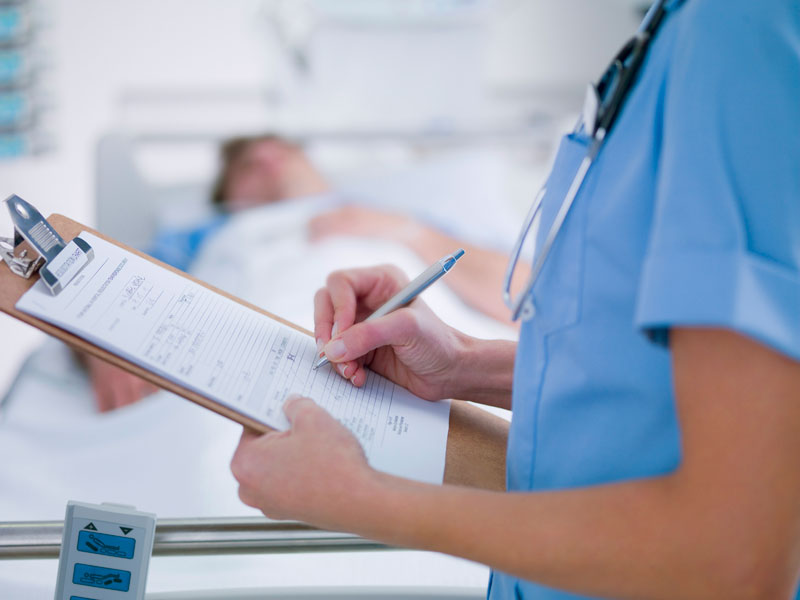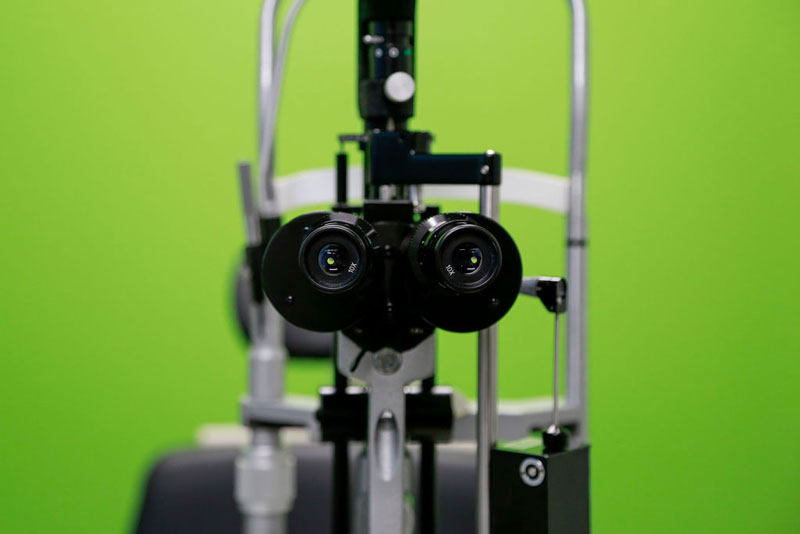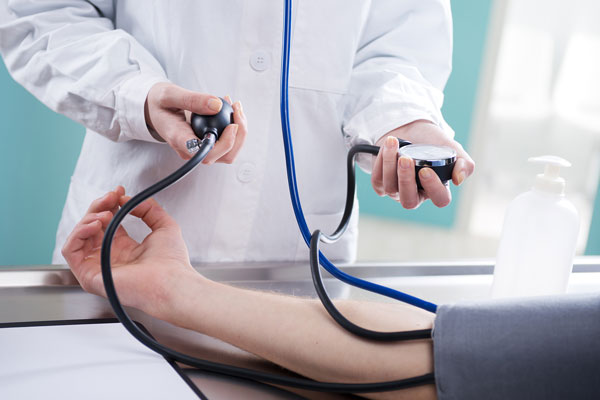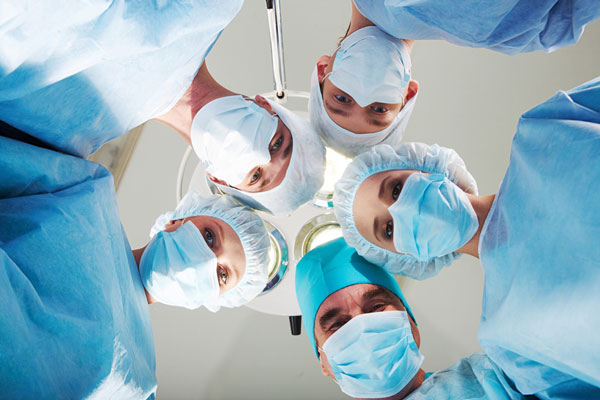What to expect
Before You Arrive
When you arrive at our building, feel free to park anywhere in our large free parking lot. Our office is located on the second floor just to the left of the stairs or elevator. In order to maximize your visit, we ask that you arrive 15 minutes prior to your scheduled appointment to fill out any necessary paperwork. Alternatively, you can click on the “Portal” link above to fill out your pre-visit information.
When you arrive at the office, please bring your insurance cards and identification, list of current medications, and any discs with relevant CT or MRI scans. If your visit is non-cosmetic, we will present you with an insurance verification form that outlines the costs of the consultation as told to us by your insurance company. We will also collect any copays or remaining deductibles.

DURING YOUR VISIT
 When you enter, the reception staff will greet you, instruct you to complete any necessary paperwork, and collect any applicable copays, deductibles, or consultation fees. Once complete, Dr. Dewan will bring you into one of our examination rooms and begin collecting a detailed medical history, and then focus on your specific concerns. An examination will be performed and if necessary, Dr. Dewan may perform additional testing for dry eyes or excessive tearing. If your concern is related to ptosis causing a vision defect, visual field testing may be performed as required by your insurance company.
Once your examination is complete, Dr. Dewan will discuss a customized treatment plan for you. Depending upon your specific needs, this may involve medications, surgery, or non-surgical procedures. In some cases, a combination of therapies is necessary. For non-cosmetic cases, insurance companies may require prior authorization for any proposed surgery, which our office will initiate on your behalf.
When you enter, the reception staff will greet you, instruct you to complete any necessary paperwork, and collect any applicable copays, deductibles, or consultation fees. Once complete, Dr. Dewan will bring you into one of our examination rooms and begin collecting a detailed medical history, and then focus on your specific concerns. An examination will be performed and if necessary, Dr. Dewan may perform additional testing for dry eyes or excessive tearing. If your concern is related to ptosis causing a vision defect, visual field testing may be performed as required by your insurance company.
Once your examination is complete, Dr. Dewan will discuss a customized treatment plan for you. Depending upon your specific needs, this may involve medications, surgery, or non-surgical procedures. In some cases, a combination of therapies is necessary. For non-cosmetic cases, insurance companies may require prior authorization for any proposed surgery, which our office will initiate on your behalf. AFTER YOUR VISIT
 If Dr. Dewan has recommended surgery or an in-office procedure, he will walk you through the process during your visit. If your concern is cosmetic in nature, we can schedule your treatment during your initial visit. Non-refundable deposits for cosmetic procedure are due at the time of scheduling, with the remainder due 1 week prior to your scheduled date.
For non-cosmetic, insurance-based patients, often a prior authorization approval is necessary before scheduling your surgical treatment. Our office will initiate this process on your behalf. Insurance companies often take a few weeks to conduct a review of your records prior to making a decision. We will contact you once a decision has been made, at which point we can schedule your surgery. In case of a combined cosmetic and insurance surgery, we will quote the relevant fees for the cosmetic portion of your surgery, with payment due 1 week prior to your schedule date.
In almost all cases, your surgery will be performed on an outpatient basis, with no hospital stay required post-operatively. Dr. Dewan can often perform your procedure in our office procedure rooms, though some procedures require an outpatient surgical facility.
If Dr. Dewan has recommended surgery or an in-office procedure, he will walk you through the process during your visit. If your concern is cosmetic in nature, we can schedule your treatment during your initial visit. Non-refundable deposits for cosmetic procedure are due at the time of scheduling, with the remainder due 1 week prior to your scheduled date.
For non-cosmetic, insurance-based patients, often a prior authorization approval is necessary before scheduling your surgical treatment. Our office will initiate this process on your behalf. Insurance companies often take a few weeks to conduct a review of your records prior to making a decision. We will contact you once a decision has been made, at which point we can schedule your surgery. In case of a combined cosmetic and insurance surgery, we will quote the relevant fees for the cosmetic portion of your surgery, with payment due 1 week prior to your schedule date.
In almost all cases, your surgery will be performed on an outpatient basis, with no hospital stay required post-operatively. Dr. Dewan can often perform your procedure in our office procedure rooms, though some procedures require an outpatient surgical facility. PRE-OPERATIVE INSTRUCTIONS
 Almost all surgeries that Dr. Dewan performs are conducted on an outpatient basis. No hospital stay is required following the procedure. Most patients will have the option to have their procedure done in our office or in an outpatient surgical facility.
For procedures done in the office, no systemic sedation is used. We use a local anesthetic to numb the specific area Dr. Dewan is working on. As such, you won’t need to get a pre-operative physical or medical testing. Dr. Dewan will direct you on whether any medications will need to be stopped prior to surgery.
For surgery center procedures, patients will be required to have pre-operative testing such as a physical, EKG, and additional blood testing. This testing will be performed by your primary care physician, and must be done within 30 days of your surgery date. Because you will receive sedation, you will also be required to fast from midnight the evening before your surgery date. Our office will inform you about your arrival time to the surgery center prior to your surgery date.
For patients having surgery in our office procedure suite, you should arrive 15 minutes prior to your procedure time. You will check in as usual with the receptionist, and then Dr. Dewan will bring you to one of our procedure rooms. Dr. Dewan will review the procedure with you and then, if necessary, anesthetize the operative area with a local anesthetic. The procedure will then be performed, and you should be comfortable for the duration.
For patients having surgery performed in an outpatient surgical facility, sedation may be given prior to the local anesthetic. This sedative, called Monitored Anesthesia Care (MAC), is given intravenously and no breathing tubes are required. The sedation is primarily used during the beginning of surgery to relax a patient and anesthetize the eyelids. During surgery, the patient is awake but comfortable, which helps Dr. Dewan achieve the best outcome possible.
In some cases, you will be completely asleep for surgery. In most of these cases, patients will still go home after surgery is complete with no hospital observation necessary.
Once your surgical procedure is complete, you may or may not have a bandage placed over the surgical site.
Almost all surgeries that Dr. Dewan performs are conducted on an outpatient basis. No hospital stay is required following the procedure. Most patients will have the option to have their procedure done in our office or in an outpatient surgical facility.
For procedures done in the office, no systemic sedation is used. We use a local anesthetic to numb the specific area Dr. Dewan is working on. As such, you won’t need to get a pre-operative physical or medical testing. Dr. Dewan will direct you on whether any medications will need to be stopped prior to surgery.
For surgery center procedures, patients will be required to have pre-operative testing such as a physical, EKG, and additional blood testing. This testing will be performed by your primary care physician, and must be done within 30 days of your surgery date. Because you will receive sedation, you will also be required to fast from midnight the evening before your surgery date. Our office will inform you about your arrival time to the surgery center prior to your surgery date.
For patients having surgery in our office procedure suite, you should arrive 15 minutes prior to your procedure time. You will check in as usual with the receptionist, and then Dr. Dewan will bring you to one of our procedure rooms. Dr. Dewan will review the procedure with you and then, if necessary, anesthetize the operative area with a local anesthetic. The procedure will then be performed, and you should be comfortable for the duration.
For patients having surgery performed in an outpatient surgical facility, sedation may be given prior to the local anesthetic. This sedative, called Monitored Anesthesia Care (MAC), is given intravenously and no breathing tubes are required. The sedation is primarily used during the beginning of surgery to relax a patient and anesthetize the eyelids. During surgery, the patient is awake but comfortable, which helps Dr. Dewan achieve the best outcome possible.
In some cases, you will be completely asleep for surgery. In most of these cases, patients will still go home after surgery is complete with no hospital observation necessary.
Once your surgical procedure is complete, you may or may not have a bandage placed over the surgical site. DAY OF SURGERY
 For patients having surgery in our office procedure suite, you should arrive 15 minutes prior to your procedure time. You will check in as usual with the receptionist, and then Dr. Dewan will bring you to one of our procedure rooms. Dr. Dewan will review the procedure with you and then, if necessary, anesthetize the operative area with a local anesthetic. The procedure will then be performed, and you should be comfortable for the duration.
For patients having surgery performed in an outpatient surgical facility, sedation may be given prior to the local anesthetic. This sedative, called Monitored Anesthesia Care (MAC), is given intravenously and no breathing tubes are required. The sedation is primarily used during the beginning of surgery to relax a patient and anesthetize the eyelids. During surgery, the patient is awake but comfortable, which helps Dr. Dewan achieve the best outcome possible.
Once your surgical procedure is complete, you may or may not have a bandage placed over the surgical site.
For patients having surgery in our office procedure suite, you should arrive 15 minutes prior to your procedure time. You will check in as usual with the receptionist, and then Dr. Dewan will bring you to one of our procedure rooms. Dr. Dewan will review the procedure with you and then, if necessary, anesthetize the operative area with a local anesthetic. The procedure will then be performed, and you should be comfortable for the duration.
For patients having surgery performed in an outpatient surgical facility, sedation may be given prior to the local anesthetic. This sedative, called Monitored Anesthesia Care (MAC), is given intravenously and no breathing tubes are required. The sedation is primarily used during the beginning of surgery to relax a patient and anesthetize the eyelids. During surgery, the patient is awake but comfortable, which helps Dr. Dewan achieve the best outcome possible.
Once your surgical procedure is complete, you may or may not have a bandage placed over the surgical site. POST-OPERATIVE INSTRUCTIONS

Swelling and Bruising
After surgery, patients can expect swelling and bruising in the surgical area. Applying ice packs for the first 2 days, followed by warm compresses for the next 5-7 days, help the bruising and swelling subside faster. Ice can be applied using anything that is cold to touch (frozen peas or corn, ice in a Ziploc bag, etc). Heat may be applied using a heating pad, warm wash cloth, or rice pack.
Pain
The recovery from most oculoplastic procedures is only minimally uncomfortable, and over-the-counter pain medications (acetaminophen or ibuprofen) are all that is required. If you have a more involved procedure, Dr. Dewan may prescribe a small amount of stronger pain medication for you to use. This is typically only necessary for 1-2 days post-operatively.
Bandages
If you have bandages, they can be removed the following morning after surgery, unless otherwise instructed.
Activity Restrictions
Most patients have minimal activity restrictions following surgery, with patients potentially able to drive and work within 1-2 days after surgery. Showering and washing your face is possible the day following surgery. Please do not rub your eyes or the area of any incisions, but rather “pat” your eyes dry. Exercise where your heart rate elevates should be avoided for 1 week. Heavy lifting of greater than 20 pounds should also be avoided for 1 week.
Eye Medications
If you were using eye drops prior to your surgery, it is ok for you to continue using them after your oculoplastic procedure. Typically, you will be prescribed ointment to be used on the area of surgery post-operatively. This will not interfere with any other medications you may be using.
Post-Operative Visit
Dr. Dewan will see you for a post-operative check typically 1 week following surgery. Some procedures do not require a post-operative check, and you will be informed if that is the case prior to surgery.
